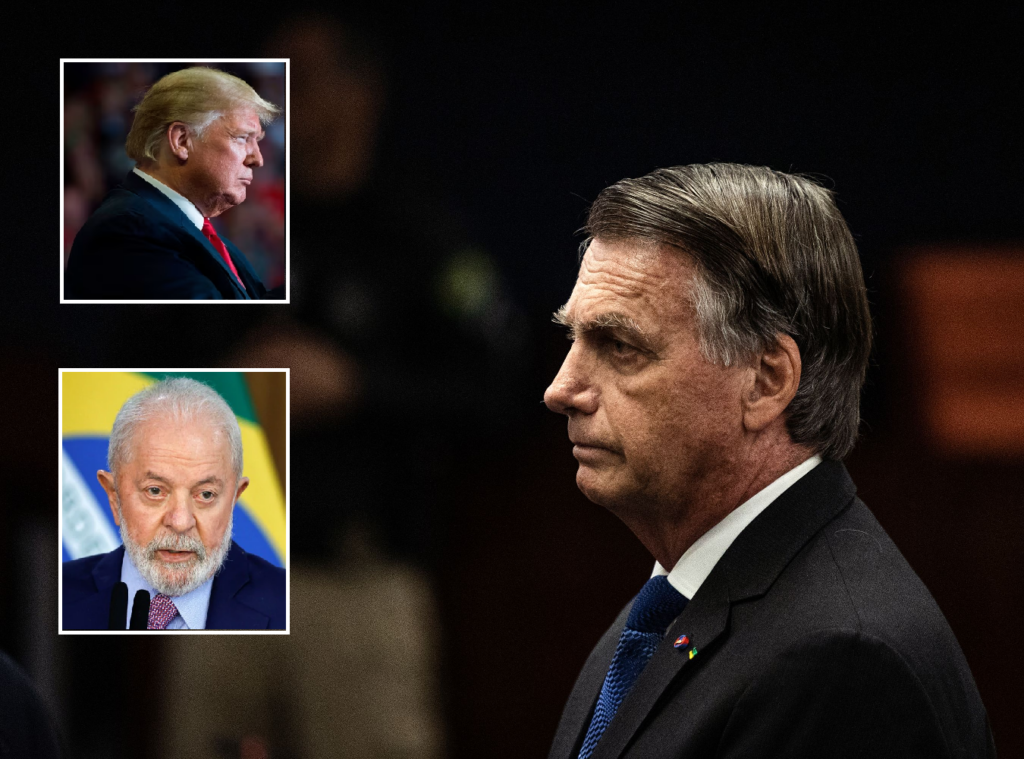
- The Supreme Court has pronounced that Bolsonaro would be charged with 27 years and 3 months of imprisonment for attempting a coup in January 2023.
- The coup attempt failed, and Bolsonaro could not remain in power, which led to the left government taking over, bringing President Lula to power.
- Experts caution that U.S. involvement in Bolsonaro’s prosecution amounts to unwarranted interference in Brazil’s domestic affairs, undermining the country’s sovereignty.
- President Lula has used this moment to sharpen his criticism of U.S. interference, while simultaneously calling for deeper engagement with India and China.
A major decision has been made by the Brazilian Supreme Court, which has prosecuted former President Jair Bolsonaro. The Supreme Court has pronounced that Bolsonaro would be charged with 27 years and 3 months of imprisonment for attempting a coup in January 2023.
This pronouncement comes after the Brazilian Supreme Court had already issued a lookout notice against Bolsonaro, asking him not to leave the country. It is worth noting that the former President, also known as the “Trump of the Tropics,” was a close ally of President Trump. Bolsonaro served as the President of Brazil from 2017 to 2022. However, in the 2023 presidential elections, according to the incumbent government and the Supreme Court of Brazil, he tried to conduct a coup in January 2023. The coup attempt failed, and Bolsonaro could not remain in power, which led to the left government taking over, bringing President Lula to power.
After this, judicial charges were initiated against Bolsonaro. The Supreme Court’s pronouncement has once again brought Brazil into the limelight. Like India, Brazil has also been heavily targeted by the United States of America through tariffs. Brazil stands at nearly 50 per cent tariff levels and was among the first countries where President Trump introduced tariffs, citing political reasons. He argued that President Lula was eroding the democratic spirit of Brazil and silencing the opposition and institutions.
Soon after the Supreme Court’s decision, President Trump released a statement expressing his unhappiness, calling Bolsonaro a friend, and criticising Lula’s administration. Relations between Brazil and the United States have not been stable since. Not only Trump, but also his close ally, Elon Musk, has spoken out against the Brazilian Supreme Court’s decision. The Court had previously raised concerns about regulations, which Musk claimed made it difficult for X (formerly Twitter) to operate in Brazil. For a brief period, X was even non-functional in the country.
One of the reasons why Brazil is increasingly targeted by the United States is also linked to its foreign policy. Brazil has severed diplomatic ties with Israel, and both Prime Minister Netanyahu and President Lula have strongly criticised each other. Brazil has openly supported Palestine, while Israel remains one of America’s closest allies. This foreign policy position has further fueled U.S. hostility toward Brazil.
Additionally, President Trump has been openly critical of BRICS, calling it a grouping that promotes de-dollarisation. Since Brazil is a major BRICS member, it has become another target of U.S. political attacks. Experts caution that U.S. involvement in Bolsonaro’s prosecution amounts to unwarranted interference in Brazil’s domestic affairs, undermining the country’s sovereignty.
At a time when the United States is highly vocal across Latin America and grappling with rising immigration from countries such as Colombia, its fraying ties with Brazil weaken its standing in the region. President Lula has used this moment to sharpen his criticism of U.S. interference, while simultaneously calling for deeper engagement with India and China. His strategy is clear: diversify Brazil’s economy away from dependence on the American continent and reinforce BRICS cooperation as a counterweight to U.S. dominance.
However, with Bolsonaro’s conviction, the far-right in Brazil faces a critical challenge. Beyond the issue of political stability, there is now a looming leadership crisis within Bolsonaro’s party. Since he was the central face of the movement, the party must reorganise, manage its internal divisions, and appoint its next leader to remain politically relevant in Brazil’s future landscape.
Aayush Pal is a freelance writer on contemporary geopolitical developments. The views expressed in his work are entirely his own.
